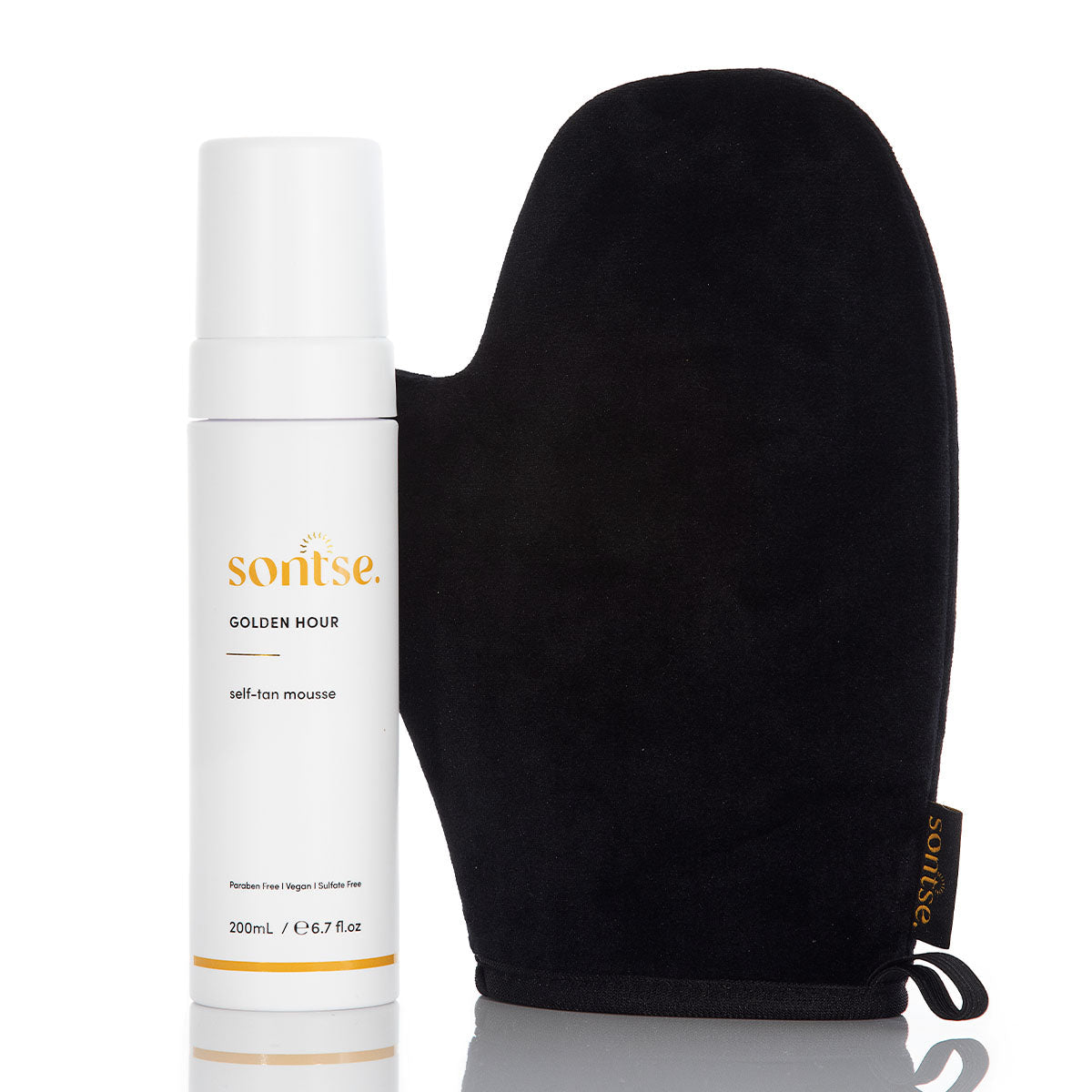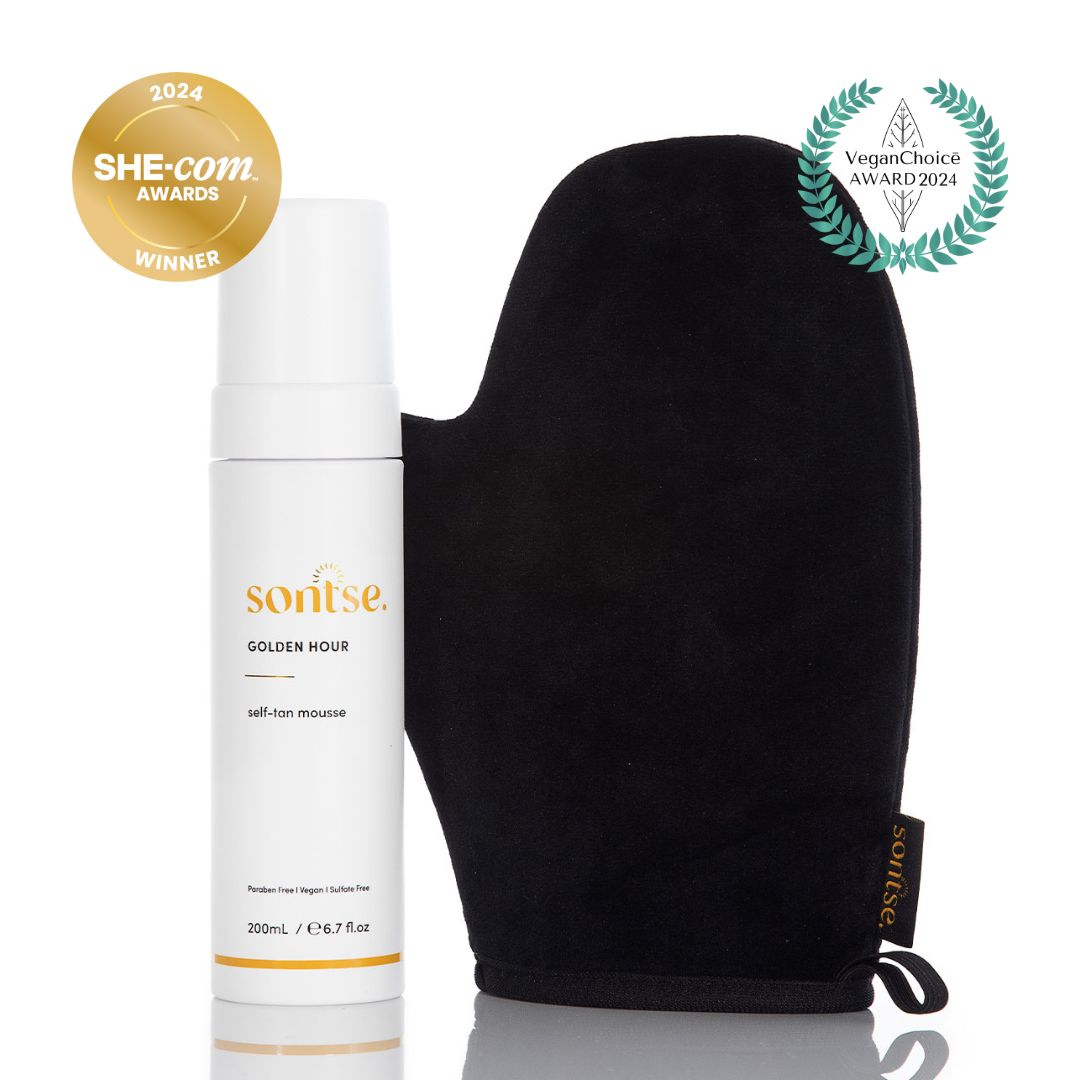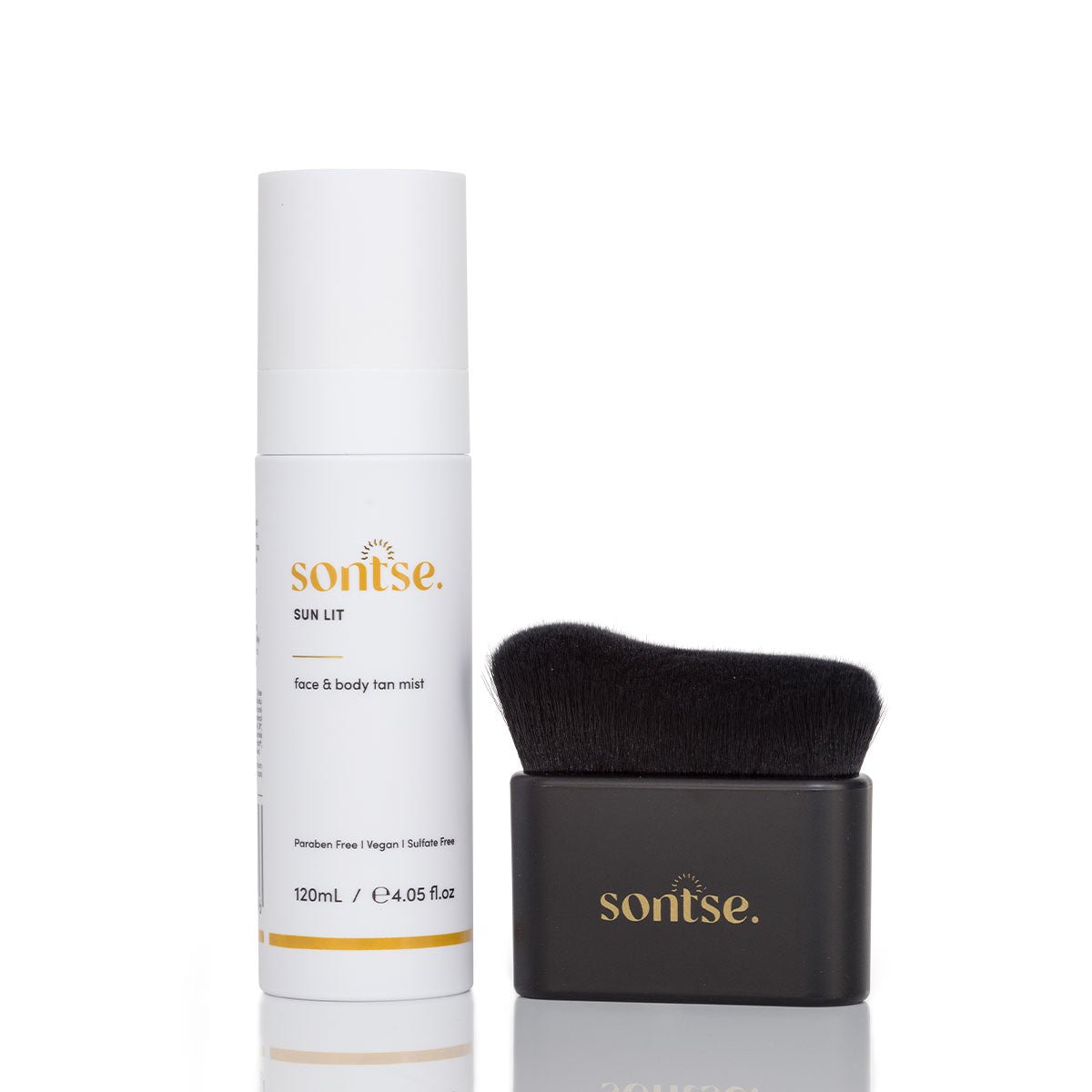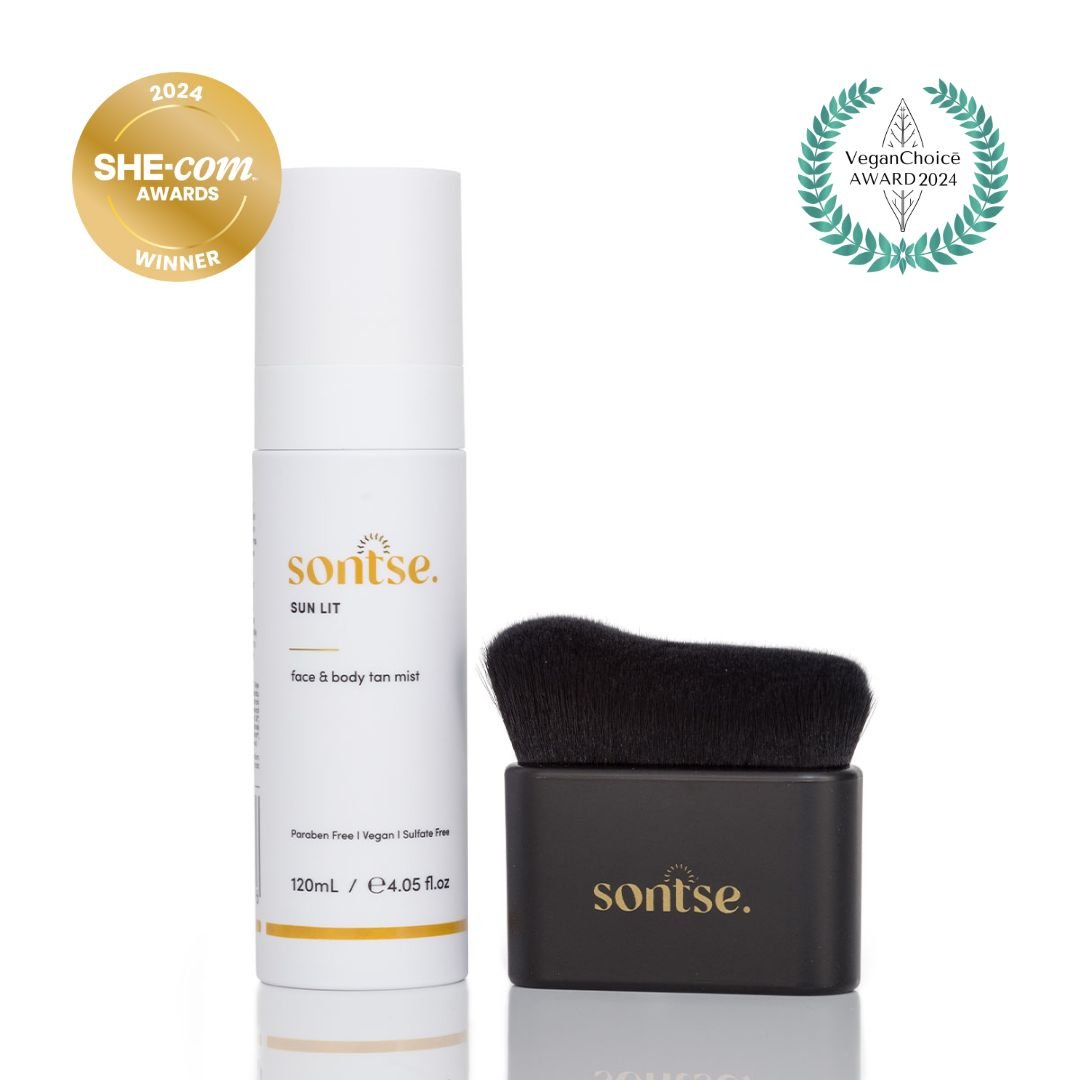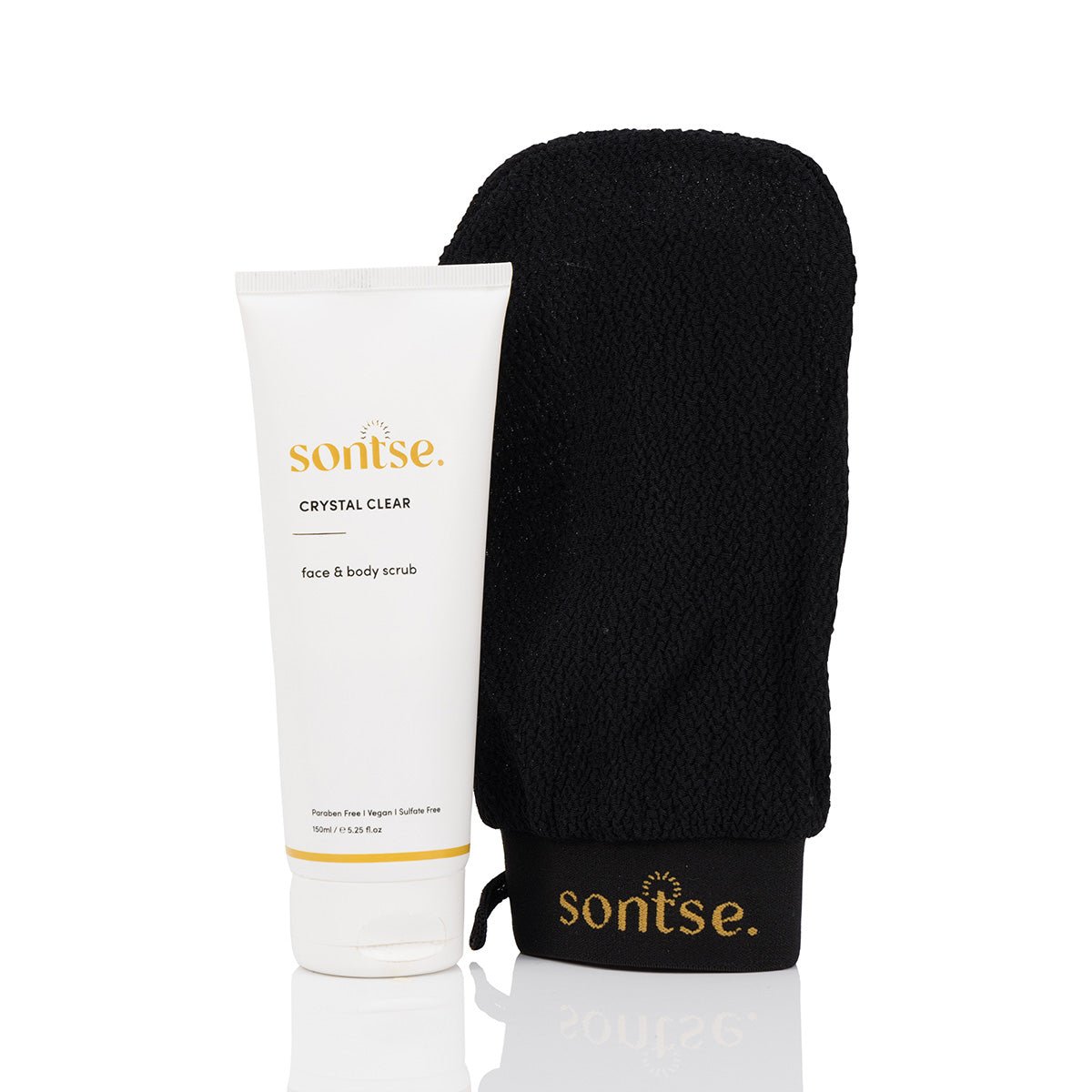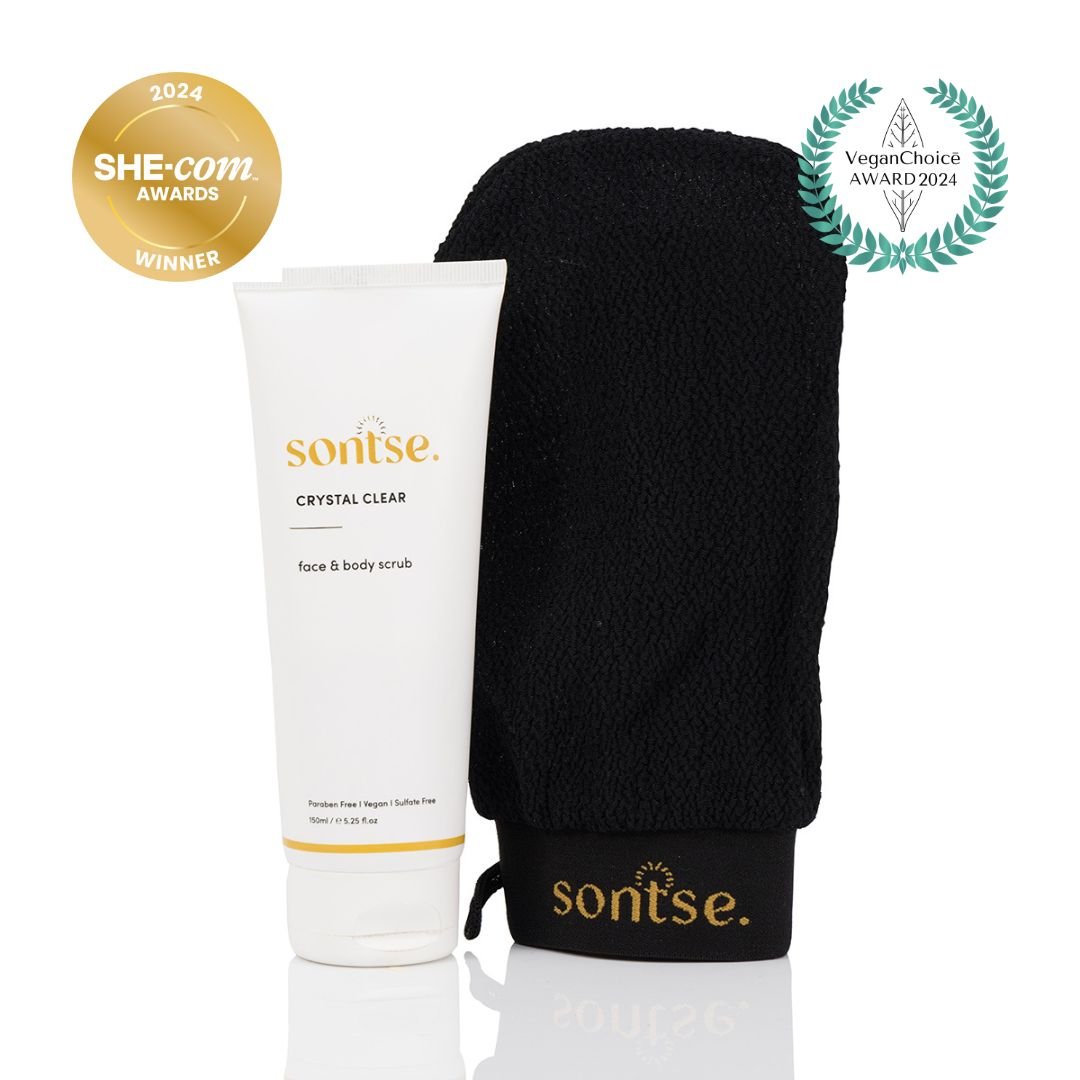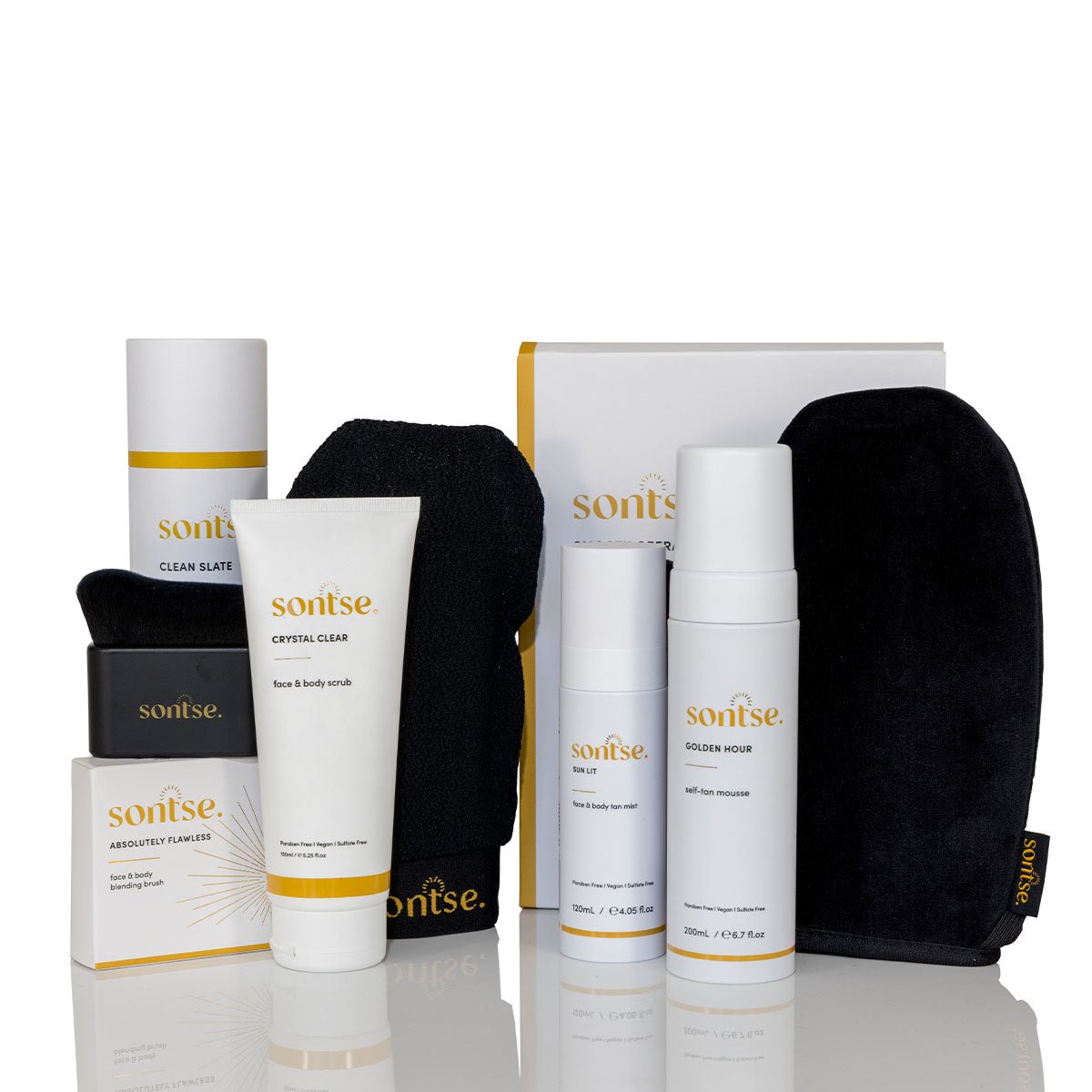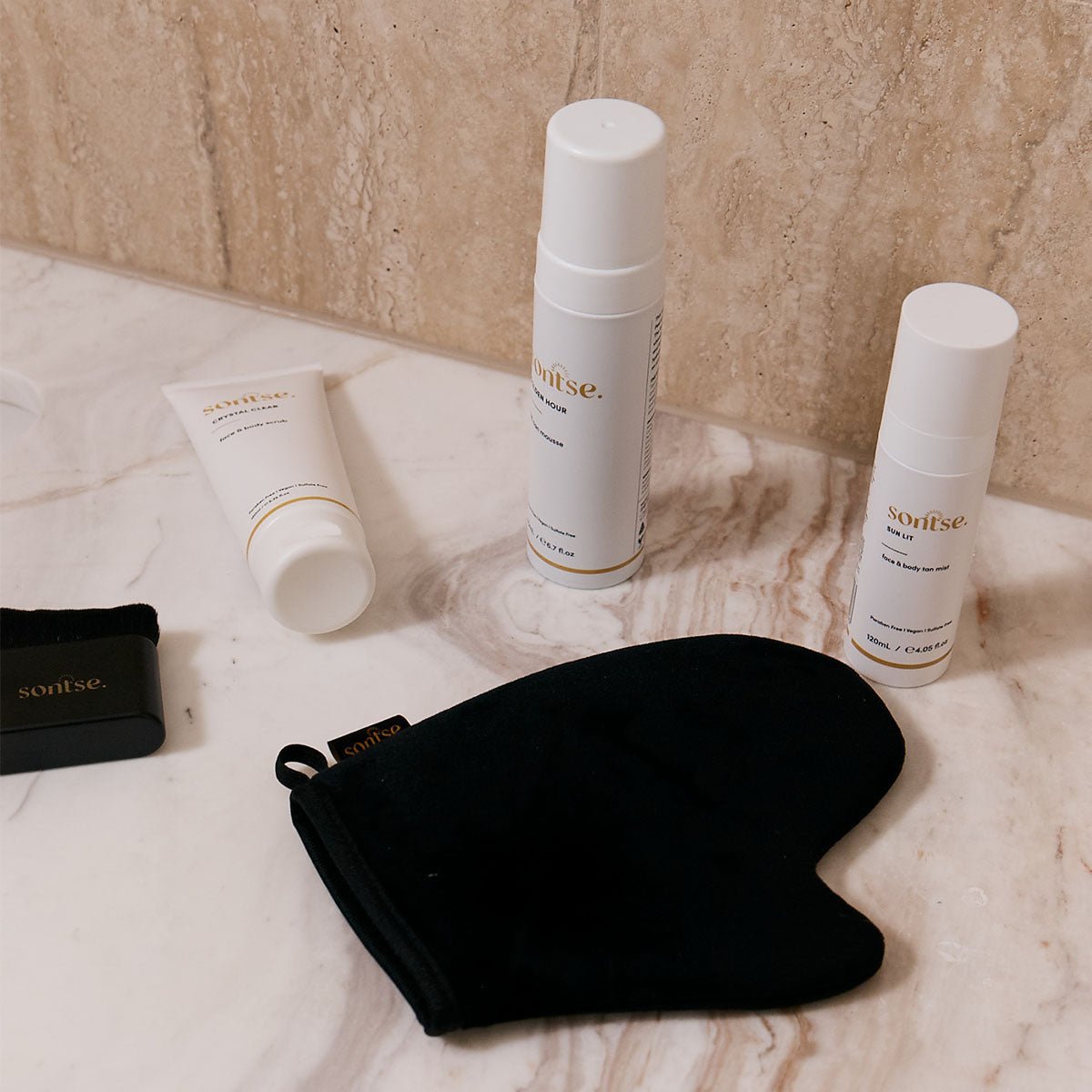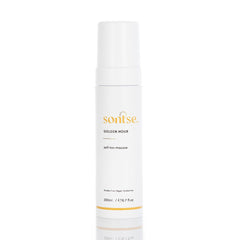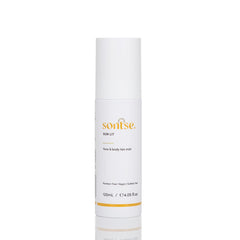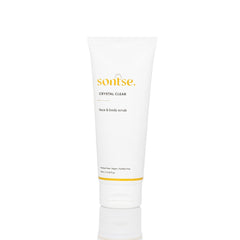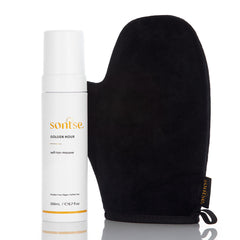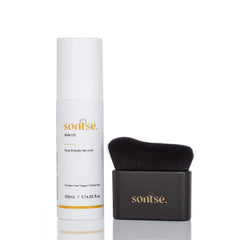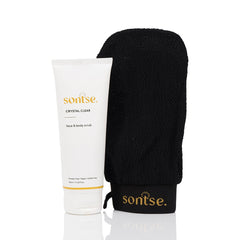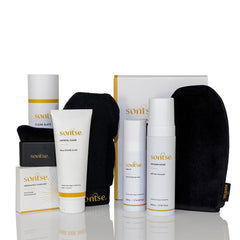Melbourne radio host Byron Cooke recently got UNDRESSED in a compelling effort to amplify a crucial message on sun safety. The usually light-hearted radio host showed a more vulnerable aspect of his story, captivating his audience with a side they might not have known existed. Inspired by his commitment, the Sontse. team decided to ask a few more questions to dig a little deeper into the radio host’s journey in battling skin cancer and continue the discussion around this important issue.
Q. Why is raising awareness about skin cancer so important to you?
It’s not every day that the radio funny guy changes their tune to discuss a more serious and personal message. Below, Byron shares the motive behind joining the UNDRESSED campaign during the Cancer Council’s National Skin Cancer Action Week.
“Well, it's important to me for the simple fact that I've had two basal cell carcinomas (BCCs) removed. One from my neck in my early twenties, and one from my chest.. more recently.
“And, because I'm in a position, as someone who's on the radio in Melbourne, and a few people might know who I am, I realise that I am able to use a platform to say, 'Hey, if it happened to me, it could happen to you.'”
Explaining to us that a basal cell carcinoma is a form of skin cancer that appears in the outermost layer of the skin like a bump, nodule or patch and is often caused by long-term UV exposure, he went on to share how simple the process is for screening, and how preventable skin cancer is when these preventative measures are taken.
“It just feels like a really simple, important message to put out there. Just being sun smart, taking the precautions of regular skin checks and if something is picked up in the case of at least a BCC – knowing that it is a relatively simple procedure to remove it, and it's highly likely you make a full recovery.”
Further adding with a smile, “So, for me, it’s a simple, clear message that seems like a no-brainer, for a pale-skinned radio host, to get out there and champion.”
Q. What was your approach to sun and skin safety growing up?
Just like most Australians we know, Byron wasn’t completely unaware when it came to sun safety. In fact, he would have considered himself quite informed and proactive compared to those in previous generations.
In his words, Byron shared,
“It wasn't as it if I did absolutely nothing. My parents did a good job, there were awareness campaigns even in my time as a kid around slip, slop, slap. There was an awareness, and so it wasn't as if I was absolutely careless, BUT, for example, I played and coached a lot of cricket – a summer sport, where you're out there, exposed. There's no cricket field that is in the shade, I mean, most of them are fully sun exposed.”
Looking back, Byron relays the all too familiar experience of cricketers and the culture of sun safety.
“When I look back, I had the zinc cream on my nose, cause you know, some of your favourite cricketers back in the day, they were known for having the white zinc on their nose and under their eyes… you put some sunscreen on, you threw it on your arms, maybe it went on your face, and you tried to rub it on as thoroughly as you could.
“But, when I look at where my BCCs were cut out, one is on the lower, right-hand side of my neck. Well, you just don't sometimes think to be as thorough as you should, and I don't think I ever rubbed that part of my neck with sunscreen.
“So, it makes sense, after probably a decade of being outside all day Saturday, from the early mornings playing junior cricket to the late afternoons playing senior cricket, or coaching junior cricket in the morning, playing senior cricket in the afternoon that of course, that exposure to that part of my neck may have been linked.”
Recalling another familiar situation that many teens and young adults today can relate to, Byron continued,
“I do also have memories of being up at schoolies week up on the Gold Coast and just being careless and stupid and being absolutely roasted… like a beetroot. And, there is nothing fun about that and you know at the time that you've made a mistake…
“… I wouldn't do that now. But, when you're young, you can be careless, especially if you're, ya know not around your parents, or, anyone that can look out for you. So look, there was the odd careless moment, where you knew you got burnt, you’re peeling, you're absolutely destroyed by the sun. But, for the most part, it was just being slightly careless around little areas out on the cricket field that was where I guess it became unstuck for me personally.”.
Q. How did you discover you had a basal cell carcinoma?
If you’re reading along and are concerned for yourself or someone you love, below Byron shares how as a busy radio presenter and awarded podcaster, he wound up discovering not one but two BCCs in enough time to take critical action.
Byron recalls, “From memory, it was during a routine skin check – which, even in my early twenties, I knew they were important to have – that it got picked up, and it turned out it was a BCC which was removed by a plastic surgeon.
“So clearly, these are very important to have… they can detect these early, and you can get them seen to as quickly as possible.”
Passionate about raising awareness, the one thing we’d love all our readers to walk away with is the understanding that a basal cell carcinoma may not be easily identifiable by the untrained eye. This is why a regular skin check is vital.
You can book an annual free skin check here.
Q. What was running through your head when you received the diagnosis?
It’s the moment no one prepares for, Byron shares what was going through his mind as his doctor explained the diagnosis and the next steps ahead.
“Well, you hear that C word, and, your heart skips a beat, doesn't it?
“But when you listen to your doctor and they point out that in the case of a BCC, this is something that's very treatable, there's an enormously high success rate in making a full recovery, it was probably more of a little bit of anxiety, or me being a bit of a wuss around the surgery.”
“I was never great with needles as a younger guy, but the process involves just a local anaesthetic and was relatively painless and quick.
“So, look, initially, I had a little bit of anxiety but overall, I was fairly comfortable with the idea that this was something that was going to be fixed pretty quickly, which is why none of us should be nervous or anxious to just go and get our skin checked.”
Urging others not to be afraid, Byron further added, “It has to be checked anyway, so just go get it done and if something is found, it’s highly likely it could be fixed quickly and relatively painlessly.”
Q. What changes to your lifestyle did you begin making after the surgery?
As one of our fellow Sontse. self-tan lovers, Byron is helping to break the stigma around sporting a sunless tan. Below he opens up about the lifestyle changes he has made to daily be more sunsmart and protect the youthfulness of his skin.
“So full disclosure… I love myself a Sontse. tan.
“And it all started with the question, 'Hey, how could I look tanned and have a bit of a glow without putting myself at risk?'
“You know, when you have my type of skin tone, you really are putting yourself and your skin at risk by sunbaking without any sunscreen on. You are also more likely to just damage your skin and obviously, it can cause ageing as well as open you up to potential skin cancers…
“...So, one of the changes was getting spray tans on occasion, and also, booking in that annual skin check. It was suggested to me that I am at high risk so at least once a year just put it in the diary and go and get checked up, which is what I do.”
At Sontse. we get behind men and women all over the world who want to upgrade to a more sunsmart lifestyle without compromising on the look of a natural-looking tan. Making the luxury of quality spray tans more affordable for everyday use, we’ve created uniquely formulated DIY self-tanners in both a self-tan mousse and self-tan body mist that can be worn underneath your SPF sunscreen. Like Byron, we’re passionate about supporting the movement toward a healthier, skin-conscious lifestyle.
Q. What's your biggest regret?
Today, just like most, Byron admits he has become more aware of the advice and simple habits he could have been doing years ago to keep his skin looking… well, “forever young”.
“I have progressively become more vain as the years have gone on and I suppose looking back, other than opening myself up to potential skin cancers… by not properly protecting myself from the sun, one of the other regrets is, I now know that the use of sunscreen, getting spray tans, all these sorts of things, are a great way to preserve your skin and keep you younger.”
“From a vanity standpoint… I would have been putting sunscreen on properly, ya know from, my teen years, every single day, if I knew what I know now, and if the signs of any visible aging would be significantly reduced.
“I'm not saying I look, super old for my age or anything like that BUT, how much younger could I look if I had applied sunscreen every single day, some moisturiser... combined with sunscreen every single day... I might even look fresher than I do know, which, OBVIOUSLY, is still looking pretty fresh (That's a joke, clearly.. this is the part where your readers hopefully laugh).”
Q. How do you hope to positively impact others with your story?
According to Byron, his goal is straightforward – if his story prompts even one person to prioritise their skin health and schedule a check-up, then he’d consider it a success.
“If I remind one person that they should get their skin checked then I am glad I did this. Or, if one person reminds someone that they love that they should get their skin checked – it’s a win.”
“The essence lies in collectively raising awareness. By sharing experiences with skin cancer, particularly for those who have gone through it, the message becomes more tangible – 'I went through it, you might too, please get it looked at.'
“It's a basic yet powerful process of spreading awareness, and if it leads to even one person getting their skin checked and getting this sorted out, then I am glad I did this.”
Q. What's something your radio listeners wouldn't know about you?
Admitting that what he is about to share may actually be surprising, the full-time radio presenter explains how outside of the studio, he’s not one for talking…
“When you talk on the radio every weekday, for hours and hours and hours.. interestingly, other than important interviews like this of course, you don't really feel like talking, when you get home because you have been talking all day.”
“When you're an extrovert and known as somebody who talks, it often surprises people to know that you don't always feel like constantly talking.
“A lot of my friends who are comedians, and who, absolutely KILL it on stage, and you're in stitches, watching them.. perform.. are often in their own time, incredibly quiet. Borderline, boring! You have to conserve your energy as a performer and as a communicator sometimes, and you don't just want to talk 24/7, so, that might be a little something you didn't know about.”
Why now is the time to join the sunless tan movement…
Byron Cooke's journey from the radio waves to a heartfelt conversation about skin health is a testament to the power of personal narratives. Beyond the laughter and banter, his openness about battling skin cancer serves as a vital reminder for us all. Byron's story urges us to prioritise preventive measures, regular screenings, and a conscious approach to sun safety. As we laugh along with his anecdotes and appreciate his vulnerability, let's collectively raise awareness about the importance of skin health.
Find out more about Byron Cooke here.
IG/Twitter/X: @byroncooke
Written By Liana Pantalone – Beauty & Skincare Copywriter at Climbing Vine Co.

